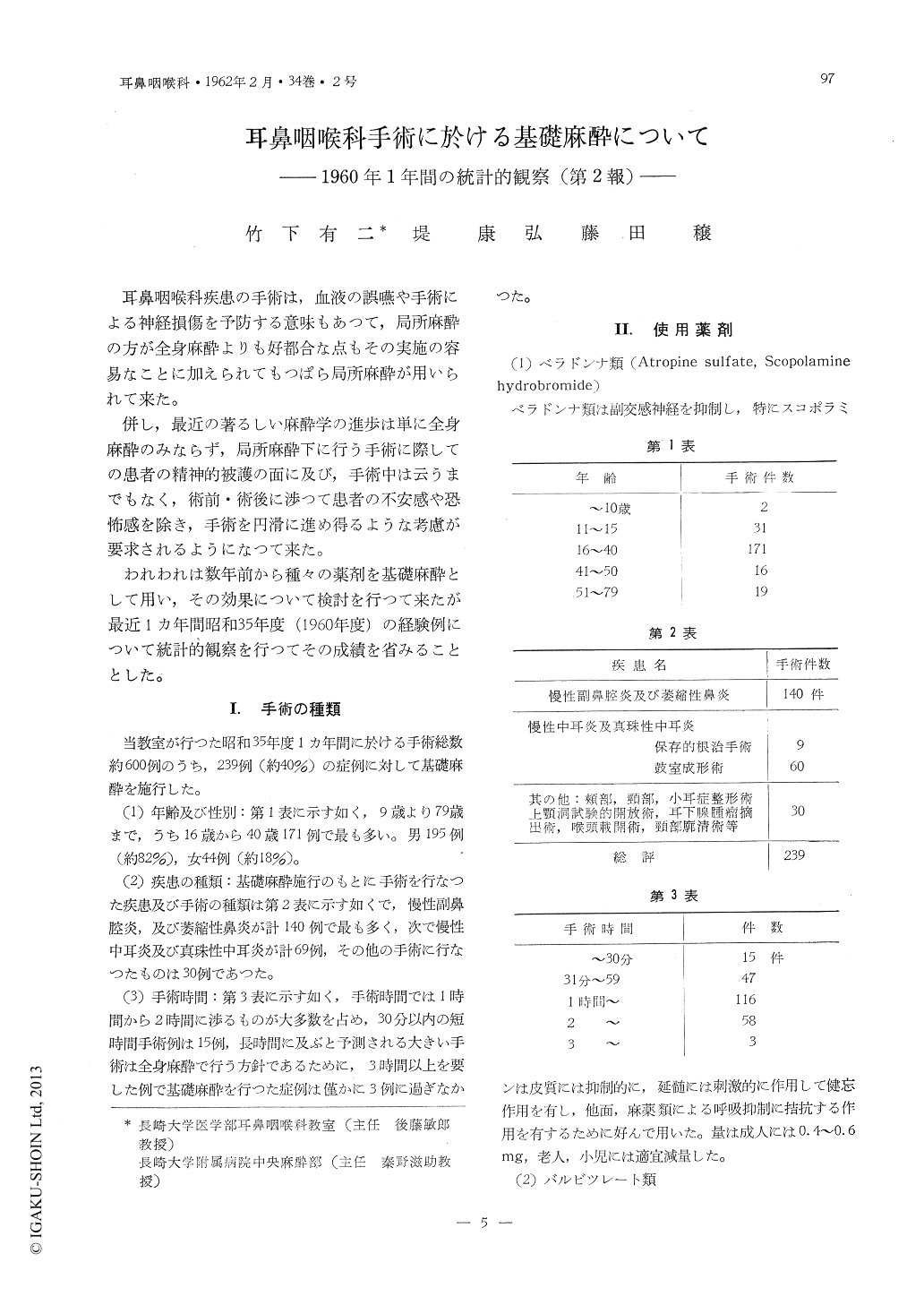- 有料閲覧
- 文献概要
- 1ページ目
耳鼻咽喉科疾患の手術は,血液の誤嚥や手術による神経損傷を予防する意味もあつて,局所麻酔の方が全身麻酔よりも好都合な点もその実施の容易なことに加えられてもつぱら局所麻酔が用いられて来た。
併し,最近の著るしい麻酔学の進歩は単に全身麻酔のみならず,局所麻酔下に行う手術に際しての患者の精神的被護の面に及び,手術中は云うまでもなく,術前・術後に渉つて患者の不安感や恐怖感を除き,手術を円滑に進め得るような考慮が要求されるようになつて来た。
In order to afford a greater comfort to the patient during operation and to facil-itate the operative procedure on a smoo-ther basis preliminary medication is needed. For making a beter choice of agents in such a procedure various medications inteneded for this purpose are studied. Two hundred and thirty nine operative cases were tenati-vely divided in to 4 groups : To the first group, 101 cases the patients were given chlorpromazine, promethazine and operidine ; to the second group, 19 cases were given pro-methazine and operidine and in 62 cases, promethazine, ional and operedine. To the third group, 46 cases vesperine and operidine were given while, the fourth group, 10 cases were tried under operidine and rolfan.
It was found that the agents used in Group I were characterized by a strong anal-gesic action but they were also accompanied by many instances of side-reactions. Such agents may be well used in operations of the middle ear but their actions appeared to be too strong for operative procedures other than the ear. The agents used the Group Ⅱ appeared to be too weak for ear operations but well suited for nasal procedures. Those used in Group Ⅲ appeared to be suitable for ear operations when given in normal dosage and for other operations when the dosage was decreased. The use of synthetic narcotic and analgesic drugs in a combined usage seem to require a further study.

Copyright © 1962, Igaku-Shoin Ltd. All rights reserved.


